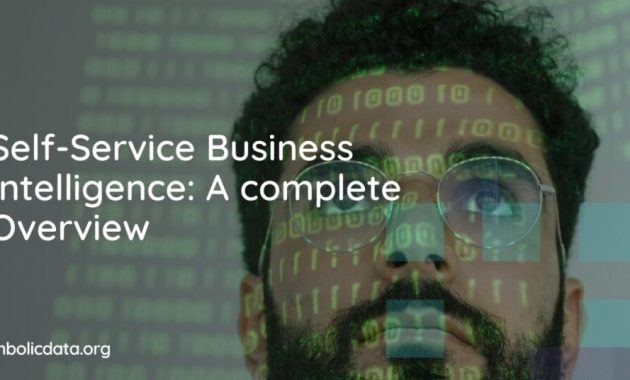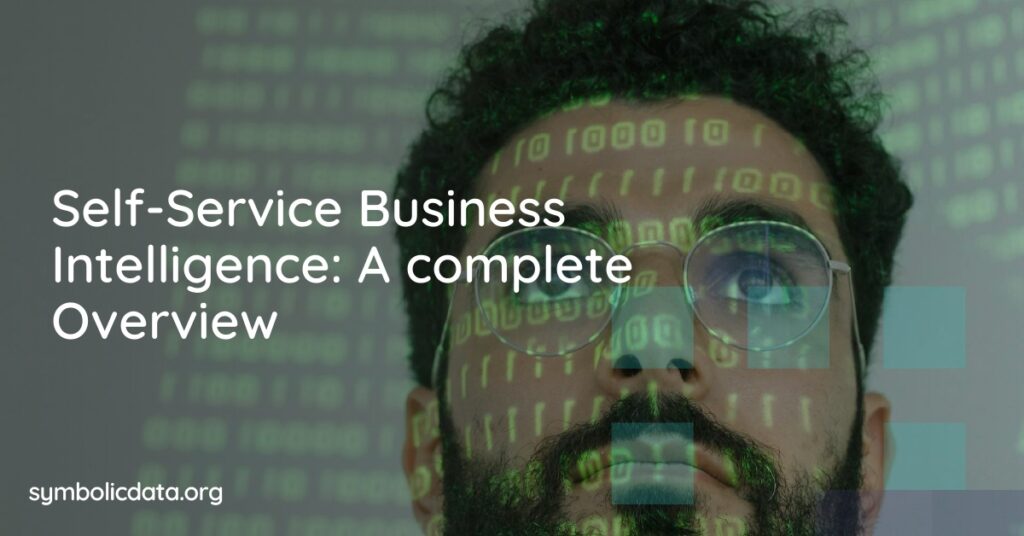
Self-Service Business Intelligence Software: A New Era of Data Empowerment
In today’s rapidly evolving business landscape, the ability to make informed decisions is paramount. Organizations are drowning in data, yet often struggle to extract meaningful insights. This is where self-service business intelligence (BI) software steps in, offering a powerful solution to transform raw data into actionable intelligence. This article delves into the world of self-service business intelligence software, exploring its benefits, key features, and how it can empower your organization to achieve a better vision for the future.
The core concept behind self-service business intelligence software is to put data analysis capabilities directly into the hands of business users. Rather than relying solely on IT departments or specialized analysts, employees across various departments can independently access, analyze, and visualize data. This democratization of data empowers individuals to make data-driven decisions, leading to increased efficiency, improved performance, and a more agile organization.
Understanding the Fundamentals of Self-Service BI
Self-service business intelligence software is designed to be user-friendly. It typically features intuitive interfaces with drag-and-drop functionality, allowing users to create reports, dashboards, and visualizations without needing extensive technical expertise. This ease of use is a key differentiator from traditional BI solutions, which often require specialized training and complex coding skills.
The primary goal of self-service business intelligence software is to enable business users to:
- Connect to various data sources: This includes databases, spreadsheets, cloud applications, and more.
- Clean and transform data: Prepare data for analysis by removing errors, inconsistencies, and irrelevant information.
- Analyze data: Perform calculations, create aggregations, and identify trends.
- Visualize data: Create charts, graphs, and dashboards to communicate insights effectively.
- Share insights: Collaborate with colleagues and share reports and dashboards.
Key Features to Look for in Self-Service BI Software
When evaluating self-service business intelligence software, several key features can significantly impact its effectiveness and usability. Consider these features:
Data Connectivity
The software should support a wide range of data sources, including databases (SQL Server, Oracle, MySQL), cloud applications (Salesforce, Google Analytics), and spreadsheets (Excel, CSV). Robust data connectivity ensures that users can access all relevant data for their analyses.
Data Preparation and Transformation
Data rarely arrives in a clean, ready-to-analyze format. The software should provide tools for data cleaning, transformation, and preparation. This includes features like data cleansing, data blending, and data modeling.
Intuitive User Interface
The interface should be user-friendly and intuitive, with drag-and-drop functionality for creating reports and dashboards. The goal is to empower non-technical users to explore data without extensive training.
Data Visualization Capabilities
The software should offer a variety of visualization options, including charts, graphs, maps, and dashboards. These visualizations make it easier to identify trends, patterns, and anomalies in the data.
Collaboration and Sharing
The ability to collaborate and share insights is crucial. The software should allow users to share reports, dashboards, and insights with colleagues. This may include features like commenting, annotation, and version control.
Mobile Access
In today’s mobile world, access to data on the go is essential. The software should offer mobile access, allowing users to view reports and dashboards on their smartphones and tablets.
Security and Governance
Data security is paramount. The software should provide robust security features, including user authentication, role-based access control, and data encryption. Data governance features help ensure data quality and consistency.
Benefits of Implementing Self-Service BI Software
The adoption of self-service business intelligence software offers numerous benefits to organizations of all sizes:
Improved Decision-Making
Self-service business intelligence software empowers users to make data-driven decisions. By providing access to relevant data and analytical tools, employees can gain a deeper understanding of their business and make more informed choices.
Increased Efficiency
By enabling users to analyze data independently, self-service business intelligence software reduces the reliance on IT departments or specialized analysts. This frees up valuable resources and allows for faster decision-making.
Enhanced Collaboration
Self-service business intelligence software facilitates collaboration by allowing users to share insights and work together on data analysis projects. This can lead to a more collaborative and data-driven culture within the organization.
Better Data Quality
Self-service business intelligence software often includes data quality features that help ensure the accuracy and consistency of data. This can lead to more reliable insights and better decision-making.
Cost Savings
While there’s an initial investment, self-service business intelligence software can lead to significant cost savings. Reduced reliance on IT resources, improved efficiency, and better decision-making can all contribute to a positive return on investment.
Real-World Examples of Self-Service BI in Action
Consider these scenarios:
- Retail: A retail chain uses self-service business intelligence software to analyze sales data, identify top-selling products, and optimize inventory levels.
- Healthcare: A hospital uses self-service business intelligence software to track patient outcomes, identify areas for improvement, and improve patient care.
- Marketing: A marketing team uses self-service business intelligence software to analyze website traffic, track campaign performance, and optimize marketing spend.
- Finance: A finance department uses self-service business intelligence software to monitor financial performance, identify trends, and make informed investment decisions.
Choosing the Right Self-Service BI Software
Selecting the right self-service business intelligence software is crucial for success. Consider these factors:
- Ease of Use: Choose software with an intuitive interface and drag-and-drop functionality.
- Data Connectivity: Ensure the software supports your data sources.
- Scalability: Select software that can scale to meet your organization’s needs.
- Features: Evaluate the features offered, such as data preparation, visualization, and collaboration.
- Cost: Consider the pricing model and total cost of ownership.
- Support: Check the vendor’s support and training resources.
The Future of Self-Service BI
The future of self-service business intelligence software is bright. As technology continues to evolve, we can expect to see:
- Increased Automation: AI and machine learning will automate data preparation, analysis, and insights generation.
- More Integration: Seamless integration with other business applications will become commonplace.
- Enhanced Collaboration: Collaboration features will continue to improve, enabling more effective teamwork.
- Better Data Visualization: More advanced visualization tools will make it easier to communicate complex insights.
Self-service business intelligence software is no longer a luxury, but a necessity for organizations striving to thrive in today’s data-driven world. By empowering business users with the tools they need to analyze data, organizations can achieve a better vision, make more informed decisions, and drive sustainable growth. Investing in the right self-service business intelligence software is a strategic move that can pay significant dividends for years to come.
As data continues to grow exponentially, the need for effective data analysis tools will only increase. Self-service business intelligence software provides a powerful solution for businesses of all sizes to harness the power of data and drive meaningful results. This software empowers the people who know the business best to extract insights and make informed decisions.
By adopting self-service business intelligence software, companies can foster a data-driven culture. This culture is characterized by informed decision-making, continuous improvement, and a commitment to innovation. The ultimate result is a more agile, responsive, and competitive organization.
The key to success lies in selecting the right self-service business intelligence software for your specific needs. Consider factors such as ease of use, data connectivity, scalability, features, and cost. There are many options available. Do your research and choose the best fit for your organization.
The adoption of self-service business intelligence software is a strategic investment that can transform your business. It empowers your employees, improves decision-making, and drives growth. Embrace the power of data and unlock your organization’s full potential.
Embrace the transformative power of self-service business intelligence software. It is a key to enhancing your business vision.
Self-service business intelligence software is a vital tool in the modern business world.
[See also: Related Article Titles]

